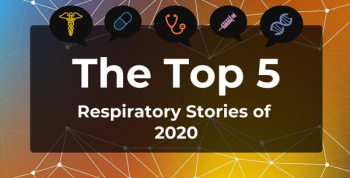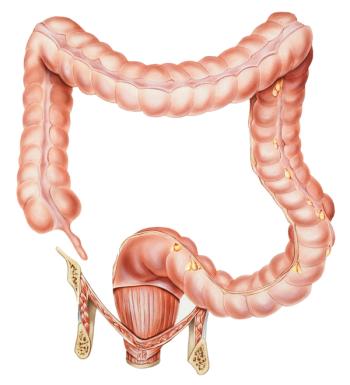
Investigators observed that some patients had improvements in their multiple sclerosis (MS) severity with increased sun exposure, whereas photosensitive individuals and those taking certain medications did not see the same effects.

Skylar is an associate editor for The American Journal of Managed Care® (AJMC®) and The Center for Biosimilars®, and joined AJMC® in 2020. She is responsible for covering all aspects of the ever-changing global biosimilar industry and produces content that is accessible and informative for all health care stakeholders.
She has a BA in journalism and media studies from Rutgers University. You can connect with Skylar on LinkedIn.

Investigators observed that some patients had improvements in their multiple sclerosis (MS) severity with increased sun exposure, whereas photosensitive individuals and those taking certain medications did not see the same effects.

Peer-led education was found to have a greater impact on multiple sclerosis (MS) health literacy than lecture-based education, a recent study from Iran demonstrated.

Despite many practices adopting telehealth services to help patients manage their chronic obstructive pulmonary disease (COPD), investigators found that patients and clinicians feel many areas need improvement.

A pilot study among hospitalized patients on the use of an inhaled naturally occurring sugar showed several positive outcomes for those with acute exacerbations of chronic obstructive pulmonary disease (AECOPD).

A study found that chronic obstructive pulmonary disease (COPD) and asthma were not risk factors for ICU admission or death as a result of SARS-CoV-2 infection.

A recent survey found that patients experienced relief of certain motor and nonmotor symptoms of Parkinson disease from using cannabis.

Physicians can withdraw inhaled corticosteroids (ICS) from triplet therapy without increasing patients’ risk of chronic obstructive pulmonary disease (COPD)-related exacerbations.

The American College of Rheumatology (ACR) announced a number of policy priorities that it is encouraging the new Congress and administration to focus on during the year.

A recent study found that women had varying levels of willingness to use long-acting injectable HIV medications, based on their history with intravenous drug use.

A meta-analysis found evidence that different kinds of physical activity can help reduce risk of heart failure for the general population.

A study on the effects of Mediterranean diets on Parkinson disease found a strong correlation between food intake and disease onset, while also suggesting a possible link between sex and diet results.

Investigators found that the ratio of lymphocytes to high-density lipoprotein (HDL) performed better in predicting pulmonary function than the neutrophil-lymphocyte ratio and the platelet-lymphocyte ratio.

A population-based study from the Netherlands showed that individuals with had at least 1 direct relative affected with chronic kidney disease (CKD), suggesting that biomarkers for CKD can aid in detecting the early stages of the disease.

A recent review explores the use of biologics in atopic and inflammatory conditions as well as lingering research gaps.

CMS finalized a rule on electronic data entry that will streamline the prior authorization process and improve data transparency for providers, payers, and patients.

Investigators using real-world data found that patients receiving treatment from slow mist inhalers (SMIs) had fewer exacerbations and hospitals readmissions compared with patients using dry powder inhalers (DPIs).

Study findings show that patients with chronic obstructive pulmonary disease (COPD) had increased risks of respiratory complications and pneumonia after undergoing a transcatheter aortic valve insertion (TAVI) compared with those without COPD.

A recent review revisited the question of whether inhalers and nebulizers have similar effectiveness to manage stable chronic obstructive pulmonary disease (COPD).

Amid speculation that total blood counts may be associated with heart failure prognosis, researchers find that higher levels of platelet distribution width could be used to predict a worse prognosis for heart failure.

The FDA decision on dapaglifozin for CKD is expected in the second quarter of 2021.

Patients with heart failure should be prioritized during vaccine rollout because of increased mortality risks reportedly associated with coronavirus disease 2019 (COVID-19).

The top 5 most-read conference stories of 2020 on AJMC.com included stories about study results on the impact that new therapies are having on cardiovascular and renal health.

The top 5 most-read respiratory stories of 2020 on AJMC.com largely focused on the treatment options and risks associated with idiopathic pulmonary fibrosis (IPF) as well as how mental health and asthma are related.

A Greek study examined the prevalence of comorbidities in patients with rheumatoid arthritis (RA), diabetes, and psoriatic arthritis (PsA).

A report published by the Personalized Medicine Coalition shows that the number of personalized medicines on the market grew at the highest rate ever recorded by the organization from 2016-2020.

The top 5 most-read stories about spinal muscular atrophy (SMA) of 2020 on AJMC.com focused on a new treatment option for SMA and whether gender or gene mutations have any effects on the disease.

A study from Denmark found that low health literacy was not a risk factor for mortality in patients with chronic obstructive pulmonary disease (COPD) compared with the general population and patients with other chronic conditions.

A study evaluating whether a virtual platform can improve access to evaluations for kidney transplants found that surgical teams could continue to keep up with evaluations adding patients to wait lists during the pandemic.

The top 5 most-read stories of 2020 about rare diseases on AJMC.com focused mainly on new and noteworthy treatment options for a variety of conditions.

Early detection of colon cancer is key to survival. New guidance advises endoscopists in identifying malignant colorectal polyps and recommendations for surgery.

259 Prospect Plains Rd, Bldg H
Cranbury, NJ 08512
© 2025 MJH Life Sciences®
All rights reserved.
